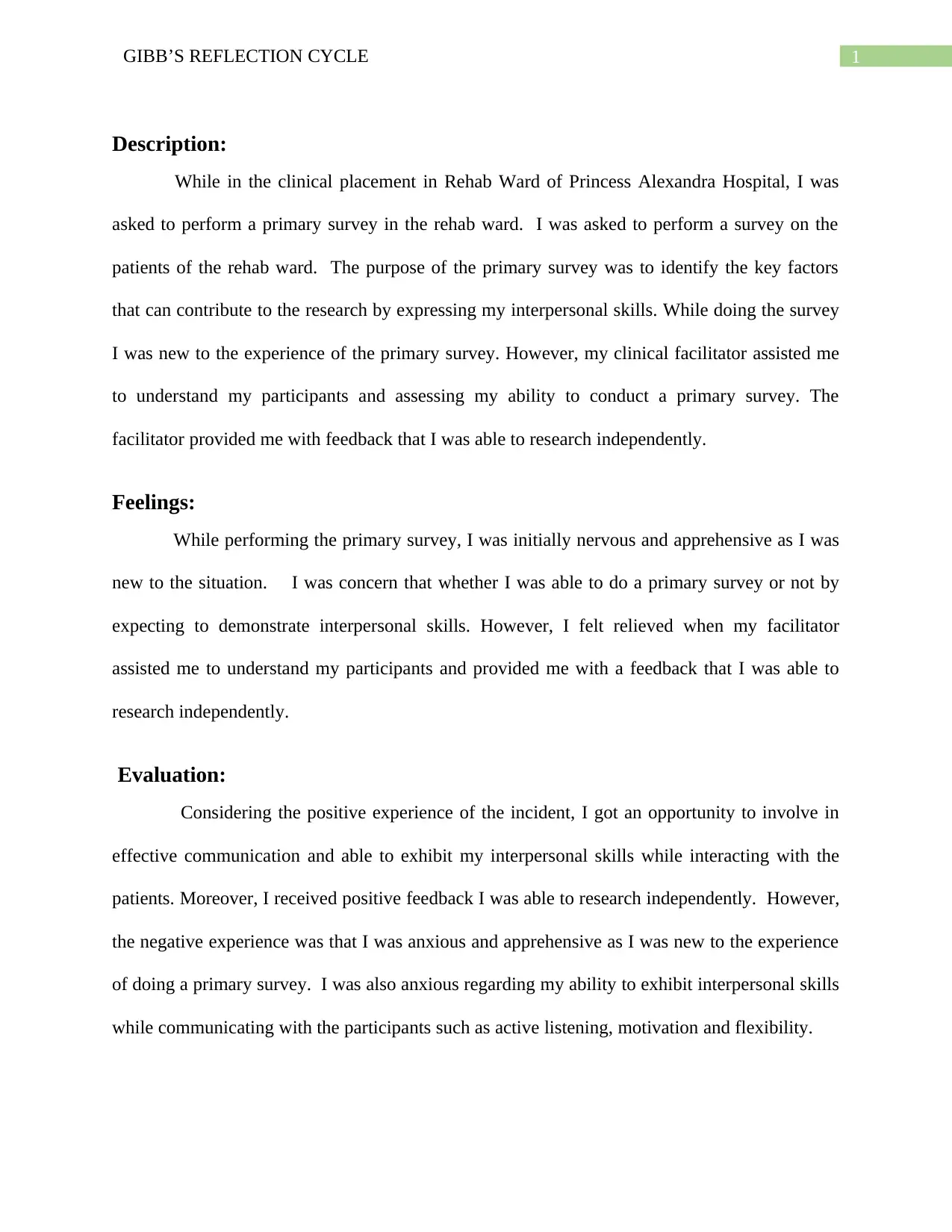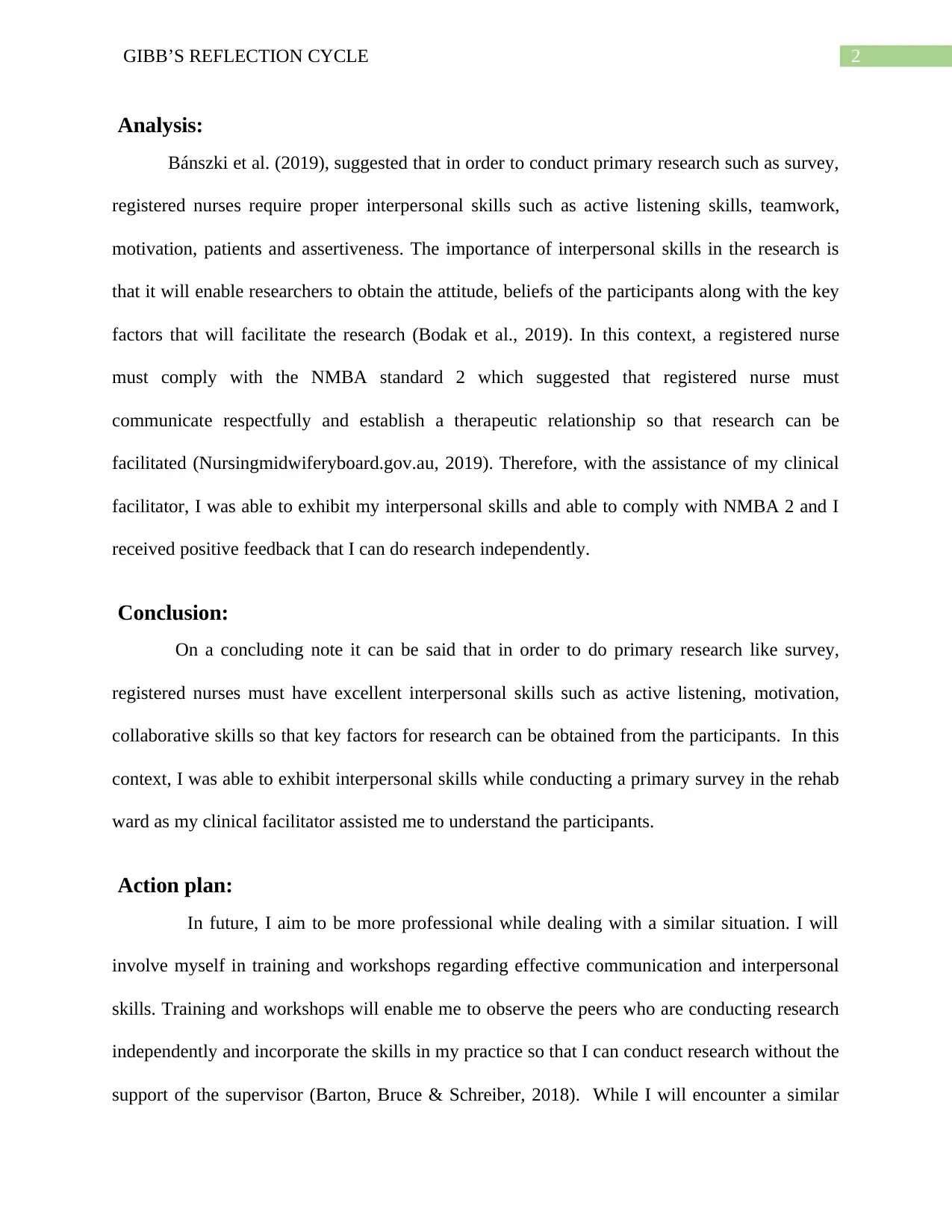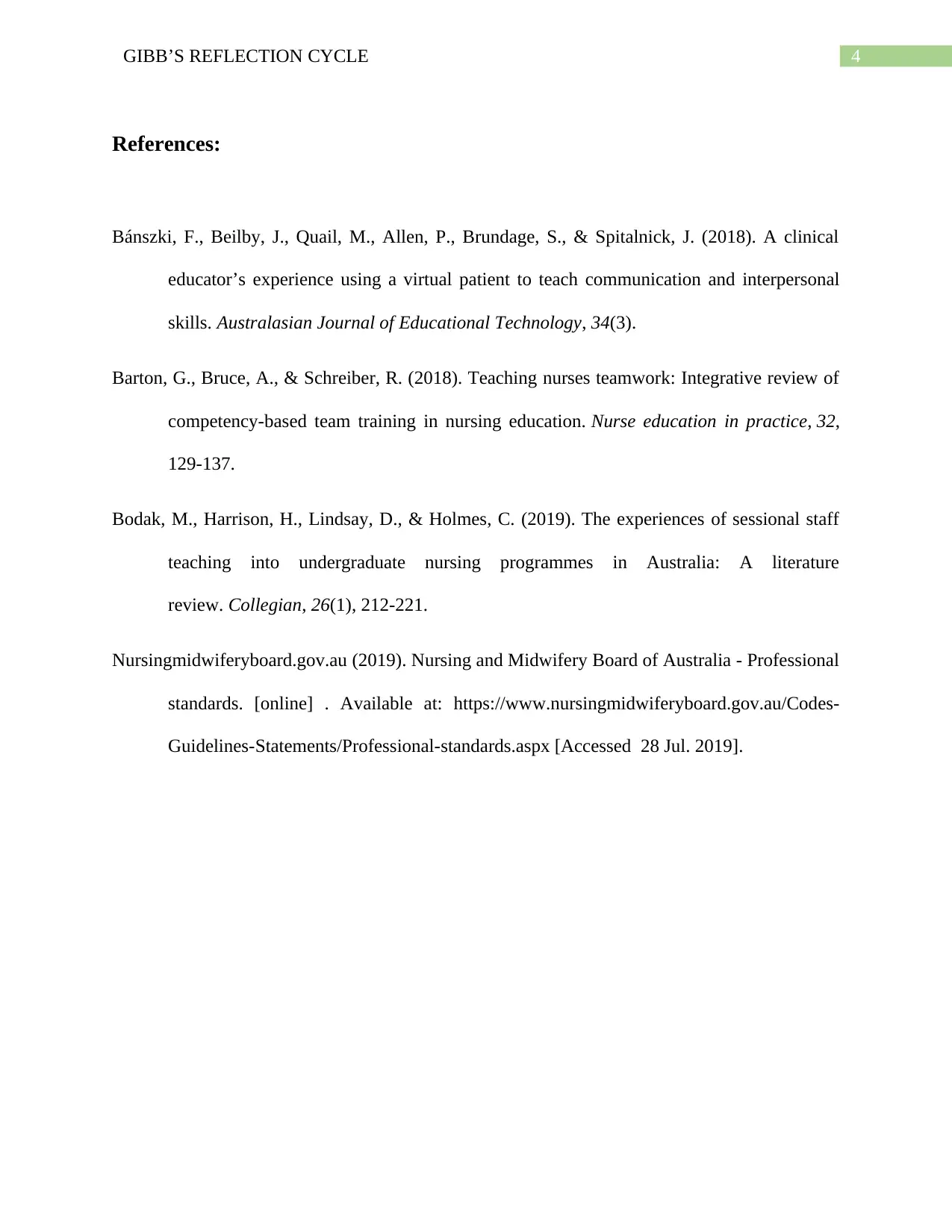NUR2299 Clinical Reflection: Gibbs Cycle and Interpersonal Skills
VerifiedAdded on 2022/09/16
|5
|881
|20
Homework Assignment
AI Summary
This assignment presents a Gibbs Reflection Cycle analysis of a clinical experience in a rehab ward, focusing on the student's development of interpersonal communication skills during a primary survey. The student describes initial nervousness, followed by relief and positive feedback from a clinical facilitator. The reflection evaluates both positive and negative aspects of the experience, analyzing the importance of interpersonal skills, such as active listening and teamwork, in conducting primary research. It references relevant literature, including Bánszki et al. (2019) and NMBA standards, to support the analysis. The conclusion emphasizes the need for excellent interpersonal skills in research and outlines an action plan for future professional development, including training in effective communication and seeking feedback. The assignment demonstrates the student's ability to apply the Gibbs Reflective Cycle to a real-world clinical scenario, linking the experience to nursing standards and providing a plan for continuous improvement.
1 out of 5












![[object Object]](/_next/static/media/star-bottom.7253800d.svg)